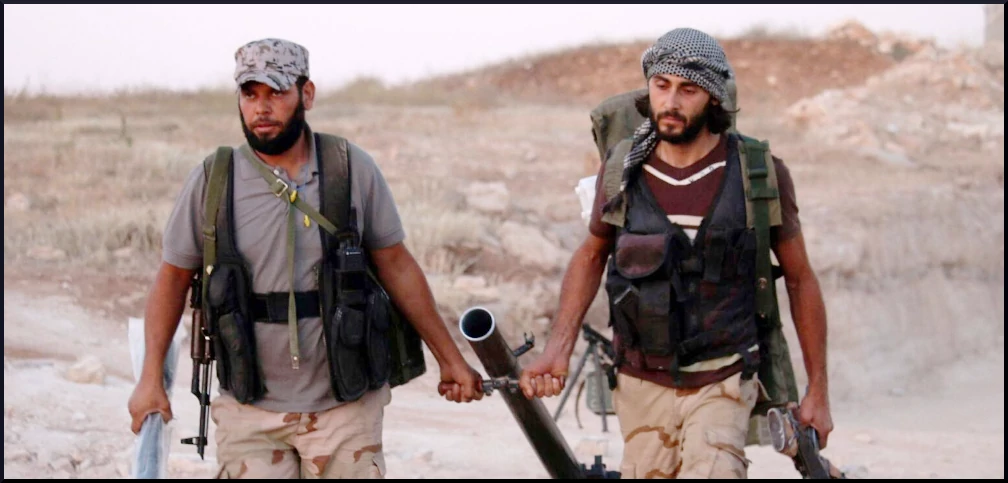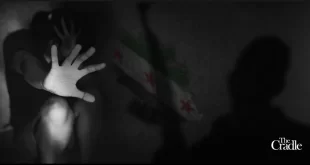by Steven Sahiounie, published on Mideast Discourse, June 25, 2023
The Astana peace talks for Syria began in 2017 and recently met in Kazakhstan on June 20-21. It surprised many when the Kazakh Deputy Foreign Minister Kanat Tumysh called the process over while saying the goals were achieved and declared that the 20th Astana meeting was the last. “Syria’s gradual emergence from isolation in the region could be regarded as a sign that the Astana process has completed its task,” he told reporters.
The meeting was attended by Russian negotiator Alexander Lavrentyev, Syrian Deputy Foreign Minister Ayman Sousan, Turkish Deputy Foreign Minister Burak Akcapar, Russian Deputy Foreign Minister Mikhail Bogdanov, Iranian senior assistant to the Foreign Minister Ali-Asghar Khaji, the head of the Saudi-backed Syrian opposition Ahmed Touma, UN special envoy for Syria Geir Pedersen, and officials from Jordan, Iraq, and Lebanon came as observers.
The two-day meeting was to discuss a roadmap developed by Russia to normalize relations between Turkey and Syria, but there appears little progress on that front, and Ayman Sousan repeated the official Syrian position of President Bashar al-Assad, that Turkey must first withdraw its military occupation forces from Syria before normalization can proceed.
“We cannot say that the Astana process is over,” Russian negotiator Alexander Lavrentyev said. “… But if the Kazakh side has decided that they need to be moved to a different location, we will discuss that and pick one.”
The UN has the Geneva peace process for Syria, but that has not been successful in returning Syria to peace, prosperity, and security. The Syrian stakeholders are Saudi Arabia, Jordan, Iraq, Turkey, Lebanon, Iran, Russia, Europe, and the United States. But, the Americans are nowhere to be seen in the process for peace. The US engineered the war on Syria beginning in 2011 using Radical Islamic terrorists as foot soldiers. President Obama and Vice President Biden developed a plan for regime change in Damascus but failed. The US was there to fund and support the war but wants to prevent any plan leading to recovery and reconstruction.
Arab Normalization
Syria has returned to the Arab League and has renewed diplomatic relations with Saudi Arabia as well as other Arab countries. Jordan has presented an Arab initiative for peace in Syria which follows the UN security council resolution 2254.
However, this has not translated into any economic help for the Syrian people living under the Damascus administration, who are mainly focused on just survival alone after the country’s economy has collapsed. There is still no hope for economic recovery or reconstruction.
Saudi Arabia, oil-rich Gulf nations, and other Arab nations have not been able to help Syria because of the US-EU sanctions in place which prevent any money or products to be sent to Syria, other than humanitarian aid in the wake of the earthquake. Without foreign investment or donations to rebuild Syria, the economy will remain at a standstill, and no jobs will be created for Syrians desperate for an income. The sinking boats full of economic migrants in the Mediterranean Sea are a direct result of the US-EU sanctions which keep the Syrians starving and desperate to help their families.
Drone attacks in Latakia
On Friday, a drone attacked Qardaha, southwest of Latakia, killing one person and injuring another. The day prior, a drone attack on Salhab, west of Latakia, and south of Idlib, killed a woman and a child.
Idlib is northwest of Latakia and is occupied by the terrorist group Hayat Tahrir al-Sham (HTS), headed by Mohammed Jolani, who began with ISIS in Iraq, and then came to Syria with Al Qaeda, and eventually rebranded his group with a name change.
HTS is defended and supported by humanitarian aid groups such as the UN, USAID, Save the Children, and Doctors Without Borders among others. Turkey has multiple military outposts in Idlib protecting HTS, who hold 3 million civilians as human shields. The terrorists possess huge amounts of sophisticated military weaponry, some of which were given to them by US President Obama and stockpiled.
The drones used by HTS are given to them by Turkey, which also supplies Ukraine with the same type of drones.
Turkish Outposts
Turkey and Russia agreed in 2019 to open the M4 highway from Latakia to Aleppo. It was agreed that Turkey would move back HTS, their ally, and allow the highway to move freely. That was never done. The two-hour drive still takes six hours because Turkey has never controlled their terrorist ally.
Turkish propaganda says they are inside Syria just to protect their border from the Kurds who are protected by the US military occupying Syria. But, there are no Kurds in Idlib.
Yesterday, Turkish military forces set up a new military post on Al-Raqim hill in the northern countryside of Latakia. That brings the number of illegal Turkish military posts inside Syria to 67. This further emboldens the HTS who are protected by the Turkish occupation forces.
The new outpost was supported by a column of 40 military vehicles, including tanks and logistical materials as they crossed the border illegally, invading, north of Latakia at Kafr Losin.
The Turkish foreign policy on Syria seems schizophrenic. On one hand, Turkish President Erdogan insists he wants to normalize his relationship with Damascus while establishing more illegal occupation posts in Idlib, which are opposed to each other.
Experts feel that Erdogan is putting pressure on the US to withdraw its military occupation of Syria before Turkey will do the same. The US supports and defends the Kurdish SDF and YPG, which Ankara considers terrorists linked to the internationally outlawed terrorist group PKK. Turkey maintains they are inside Syria to defend their border against attacks by the SDF and YPG. The YPG is a communist military wing of the Kurdish autonomous region in the northeast of Syria and is directly linked to the PKK. The US has never had any problem working with, or supporting and defending the communist and terrorist groups, who have practiced ethnic cleansing in the northeast of Syria.
Turkey may be in Syria as an affront to the US, and to revenge their betrayal at the hands of a fellow NATO member, the US. Friends don’t support the direct enemies of a friend.
Syrian Refugees to Go Home
In the Turkish election last month, both candidates promised to send all the 3 million Syrian refugees back home. It appears, the guests have overstayed their welcome, and are now blamed for the dismal economy and social ills.
Syrians have suffered in Turkey from racial hatred and discrimination. Many would like to go home, but what about an income? There are no jobs in Syria. The terrorists dismantled the factories and took them to Turkey. The US-EU sanctions prevent ordering machinery to rebuild the factories. There is also the issue of lack of electricity, which is doled out in three periods of 30 minutes three times per day.
Suleyman Soylu, Turkey’s Minister of the Interior, was inside occupied Syria on May 24, when he laid the first stone of a massive building complex in Ghandoura, north of Aleppo.
The minister stood protected by Turkish tanks and military on Syrian soil while he declared Turkey will build 240,000 homes there within three years and Syrian refugees will be sent there to live.
UN Geir Pedersen
Geir Pederson is the Special Envoy of the UN Secretary-General for Syria. He is working with all sides in the Syrian conflict as he attempts to progress toward the UN resolution 2254 which was established in December 2015.
Pedersen gave an important interview to Majalla, in which he said the status quo in Syria is not acceptable. This refers to the current situation in Syria which sees no battlefields, no war, but the country cut into pieces of foreign occupation: Turkey in the northwest and the US in the northeast.
“The elephant in the room is the US, one of the biggest stakeholders. The US and Europeans up till now are committed to the three nos: No reconstruction, no lifting of sanctions, and no normalization until there is genuine progress in the political process. Does that make your life easier or more difficult?” said Pedersen in the interview.
The US holds the power to prevent any Syrian from finding an income in Syria and staying at home. The migrant tragedies at sea are a direct result of the US-EU sanctions which strangle the Syrian people and prevent them from recovery at home but push them toward desperate and deadly boat rides which can take them to the bottom of the sea.
 Syria Support Movement solidarity with the Syrian people
Syria Support Movement solidarity with the Syrian people





